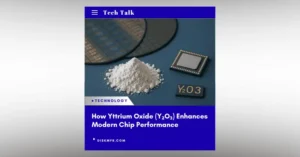On October 7th, local time, a new round of military conflict broke out between Israel and Palestine, with both sides continuously engaging in warfare, leading to escalating tensions. This sudden and unprecedented escalation of the Israel-Palestine conflict is a human tragedy, resulting in economic losses and industrial damage. In the global tech industry, Israel, as a small yet influential player, particularly excels in the field of semiconductor technology. It is one of the few countries outside East Asia that produces advanced chips, serving as a major source of chip engineering talent, a fertile ground for semiconductor startups, and a hub for international chip manufacturers.
01
Israel: A Key Hub for Global Semiconductor Manufacturers
According to data from the Israel Venture Capital Research Center (IVC), as of 2018, Israel had a total of 163 chip companies and 35 research and development centers. By the first half of 2021, 37 multinational companies had established semiconductor branches in Israel. As of 2022, Israel boasts over 600 semiconductor companies, with nearly 200 dedicated to chip design and research.
Among the tech giants with significant operations in Israel, Intel holds a prominent position. Intel’s relationship with Israel dates back to 1974 when it established its first overseas base in Haifa. Over the years, Haifa has become a crucial hub for Intel’s chip research and design, contributing significantly to Intel’s enduring success. In addition to Haifa, Intel has research centers in Petach Tikva and Jerusalem.
Furthermore, Intel has production facilities in Kiryat Gat, Israel, including Fab 28, which manufactures 7nm process chips, and Fab 38, currently under construction and set to open in 2024, featuring 5nm process technology and EUV lithography. Currently, Intel employs approximately 12,800 people throughout Israel, making it the largest private employer and exporter in the country, with operations spanning cutting-edge fields such as artificial intelligence and autonomous driving.
Tower Semiconductor, the world’s seventh-largest foundry, is an indigenous semiconductor manufacturing company in Israel. Tower operates two factories in Israel, producing over 50,000 wafers per month, providing customers with analog and mixed-signal semiconductors primarily used in the automotive and consumer industries. Last year, Tower Semiconductor was acquired by Intel.
Aside from Intel, NVIDIA also has a significant presence in Israel, primarily focused on research and development. Israel serves as NVIDIA’s largest R&D center outside of the United States, with seven offices and 3,300 employees, accounting for 12% of its global workforce and making it one of the country’s largest tech employers.
Qualcomm and Cisco have also established research centers in Israel. Google is constructing a chip factory in the country, and Microsoft plans to establish data centers to expand chip research activities locally. Beyond American giants, South Korean semiconductor giants are continually investing in Israel and have significant reliance on the country. As early as 2016, Samsung established a branch in Israel and has continued to invest and acquire in the country in recent years.
It can be said that nearly all leading global international semiconductor companies have established a strong presence in Israel.
02
Crisis in Israel-Palestine and its Impact on the Semiconductor Supply Chain
As Israel enters a state of conflict, semiconductor companies operating within the country are likely to face significant disruptions in the short term.
For instance, NVIDIA has already canceled its scheduled artificial intelligence conference in Tel Aviv, which was set for October 15th. Intel also faces considerable uncertainty, as its research center in Haifa is located just 40 minutes from the Lebanese border, and its production facilities in Kiryat Gat are only 30 minutes from the Gaza border. Currently, both of these areas are at the center of the Israel-Palestine conflict.
Additionally, many employees, including senior management, in these companies serve in the Israel Defense Forces as reservists. Israel has announced an unprecedented call-up of 300,000 reservists, potentially including many from semiconductor firms. NVIDIA’s CEO, Jensen Huang, disclosed in an internal email that nearly 400 of the company’s Israeli employees had been called up for military service.
Apart from those called up for military service, the daily commute of many employees is affected. For example, the blockade imposed by Israel on the Gaza Strip effectively closes all border crossings, preventing many employees who commute daily from Gaza to Israel for work from reaching their workplaces. This will lead to a shortage of essential personnel, thereby affecting the regular operations and production of many companies.
The escalation of the Israel-Palestine conflict has also led to disruptions in transportation, including flight cancellations and the blockade of sea routes, which is deeply affecting supply chains. Currently, many airlines have suspended flights to and from Israel, and maritime operations face additional restrictions imposed by the Israeli Navy, making the movement of goods in and out of the country increasingly challenging.
This round of the Israel-Palestine conflict is severe, and it is not expected to end in the short term. Looking at the long-term perspective, the global semiconductor supply chain, which has only recently recovered from the impacts of the pandemic, may once again experience disruptions and disruptions. The extent of this impact will become clearer as time goes on, with factors such as the duration and intensity of the conflict and whether it spills over into other regions being critical considerations.
Related:

Disclaimer: This article is created by the original author. The content of the article represents their personal opinions. Our reposting is for sharing and discussion purposes only and does not imply our endorsement or agreement. If you have any objections, please contact us through the provided channels.








